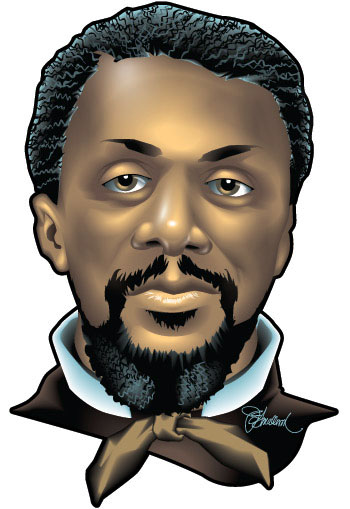 |
|
|
 Macon B. Allen Macon B. Allen
(1816-1894) — The First African American licensed to practice law and to hold a judicial position in the United States
By Bob Hilson
When Macon B. Allen passed the Maine bar exam in 1844 and granted a license to practice law, he was recognized as the nation’s first African-American lawyer.
But the burdens Allen withstood in his attempt to become an attorney were difficult. Anyone could be admitted to the Maine Bar Association — whether they had passed the state’s bar exam or not — as long as they were considered to have “good moral character.”
But Allen was black and, according to the Constitution at the time, not considered a U.S. citizen. Therefore, he was not afforded the “good moral character” loophole to become a lawyer. To bypass that stipulation, Allen took and passed the state’s bar exam.
Finding work in Maine as a lawyer proved to be just as troublesome for Allen. Few blacks lived there and white residents were wary of hiring a black man to represent them in court.
A good place for a black man
“Maine was not a good place for a black man to practice law as an attorney,” Allen later recalled.
Hoping to jumpstart his career, Allen moved to Boston and in 1845 passed the Massachusetts bar exam – despite fatigue from having to walk 50 miles to the test site on the day of the exam because he could not afford transportation.
In Boston, his problems finding sustainable work as a lawyer continued. In 1848, to earn a little extra money, he took and passed a strenuous exam to become a Justice of the Peace in Middlesex County, Mass., thus becoming the first African-American judge in the United States.
As of January 1, 2020, two African-Americans have been appointed and confirmed as judges on the U.S. Supreme Court and 226 black jurists have served on the federal bench. Countless blacks have been named judges in local jurisdictions.
Allen was born in 1816 in Indiana, a “free” state, meaning slavery was not allowed. However, Indiana was not friendly towards blacks, who were required by the state legislature to register with the county and post a bond stating that they would not cause trouble.
He was self-educated and moved to Portland, Maine, where he taught grade school and later worked as a law clerk for an anti-slavery leader/lawyer before being admitted to the Maine and later Massachusetts bar associations.
Allen moved to Charleston, South Carolina, after the Civil War to open a new legal practice. In 1873, he was appointed a judge in the Inferior Court of Charleston and a year later was elected judge probate for Charleston County, South Carolina.

After Reconstruction, Allen moved again, this time to Washington, D.C., where he worked as an attorney for the Land and Improvement Association.
Allen continued to practice law until he died in 1894 at age 77.
|











